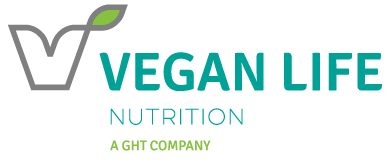Being mostly vegan is ok
Vegans choose their diet for a variety of reasons. Whatever the reason, there are challenges that come with making the decision to trade lifelong eating habits and traditions for a entirely new way of eating. While going vegan may sound simple enough — just eliminate all animal food such as dairy, eggs, meat, and fish from your diet — making the transition can actually be fairly complicated, especially if you try to go cold turkey.
First of all, it’s difficult to go vegan if you have some health issues such as a vitamin B12 or zinc deficiency, IBS, or have allergies to nuts, soy, or gluten.
Adopting a vegan diet requires planning so that you don’t rely on the convenience of processed vegan foods which are often high in salt and have a long list of strange ingredients and additives. If you live with a non-vegan, it’s hard to avoid eating those leftovers because who wants good food to go to waste!
So, perhaps, the best strategy is to be “mostly vegan”. Try to eat vegan three days out of the week to start with or try following a vegan diet during the day, and then treat yourself to some fish or high-quality meats that are produced from farms that use humane farming practices for your evening meal.
You’re vegan most of the time
The biggest challenge to going vegan is giving up all of the food that you’ve been eating practically all of your life. There will be times when you have real cravings for some meat! Then there’s the lack of social support. People can be very condescending and don’t make a real effort to understand your reasons for transitioning to veganism.
When shopping for vegan products, you have to get used to checking all of the ingredients on the foods that you’re buying because animal products are in foods you’d never have considered like beer, carbonated drinks, and even gummy bears. Eating out can present its own set of challenges, especially if it’s a special event, because, while there are often vegetarian options on the menus of many restaurants, there may be few, if any, vegan options.
Going vegan has it share of physical, social and economic challenges. But, the good news is that it’s not impossible. One way to ease into veganism is to start off by adopting a vegetarian diet and gradually transitioning to a vegan diet – consider yourself vegan most of the time.
Take care of yourself all of the time
Whether you’re a true vegan or find yourself being mostly vegan, it’s important that you take care of your health. One of the issues is the potential to develop a B12 deficiency because meats are the primary source of this important vitamin, making it difficult to obtain from the food you eat on a vegan diet.
Vegan Life Nutrition offers vitamin supplements the are produced from lichens, a plant-like moss which can accumulated nutrients like B12 and D3. Our vitamins are completely free of animal byproducts, but are sourced from healthy, naturally grown plants.
